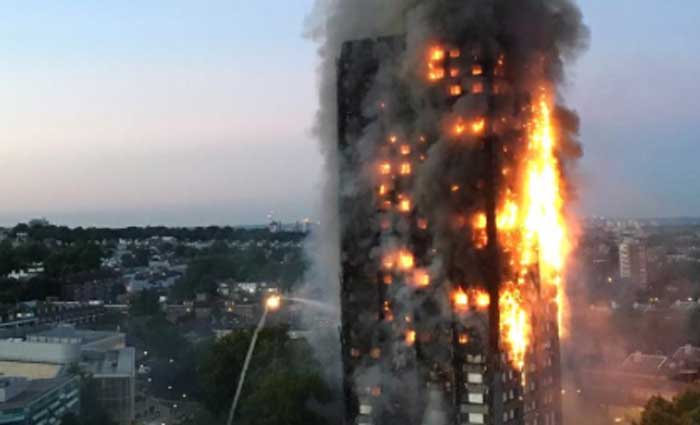Cladding issue: Westpac auditing projects for compliance with safe building practices
Westpac has begun an audit of all new and current building projects it is funding to make sure they comply with the building code amid concerns over flammable cladding used in construction.
Recently, a Senate report said flammable cladding on buildings should be banned and an ABC’s Four Corners investigation showed thousands of buildings across Australia have used such material that led to the deadly Grenfell Tower fire in London.
In what it said was an initial step, Westpac has asked the developers of all its residential and commercial projects that are under way and planned to confirm the compliance of all external wall cladding products with the National Construction Code.
The move does not seek to confirm the compliance of buildings that are already completed – Westpac said it was too early to comment on past projects.
Westpac’s move reveals the concerns of financiers about the risks of combustible cladding on buildings, such as the fire at Melbourne's Lacrosse tower in 2014.
Recent concerns about non-compliant cladding had led the bank to introduce "additional processes", a Westpac spokesman was quoted as saying by The Australian Financial Review.
"In the first instance we are undertaking an audit by asking developers of new and current projects to provide confirmation of compliance on external wall cladding products that are either designed [to be installed], being installed or are already installed," he said.
Among the details sought are the manufacturer and type of product, how the product was to be used and whether the particular product complied with the building code for its intended installation and use.
"Where required, we will be seeking further confirmation from the relevant project consultants, including a statement from the building certifier, that the appropriate certification is in place or that appropriate measures are being sought," he said.
While concerns about combustible cladding are most immediate in residential buildings – where people sleep – audits by authorities across the country have revealed panels containing flammable filling such as polyethylene, in possible breach of the building code and fire safety regulations, on public buildings including Melbourne's AAMI Park stadium and the New Royal Adelaide Hospital.
Insurers are already warning that they may refuse cover on buildings with problematic cladding, or price it too high for strata corporations to afford.
This means lenders too will want to limit their exposure to buildings such as residential towers that do not comply.
For banks right now, cladding is similar to the risks of the Y2K bug that threatened to paralyse computer systems worldwide ahead of the date change to 2000 and they will be taking similar steps to reduce those risks, said Graham Montgomery, the executive chairman of mortgage broker Custom Equity Group.
"At that stage, every lending application had to include a questionnaire on the business side about details of their software, what programs they sued, were they backed up – a whole mirror to addressing an issue that never became an issue," Montgomery said.
"The banks were proactive and I can see that moving forward that's going to be that type of thing that starts to happen."
